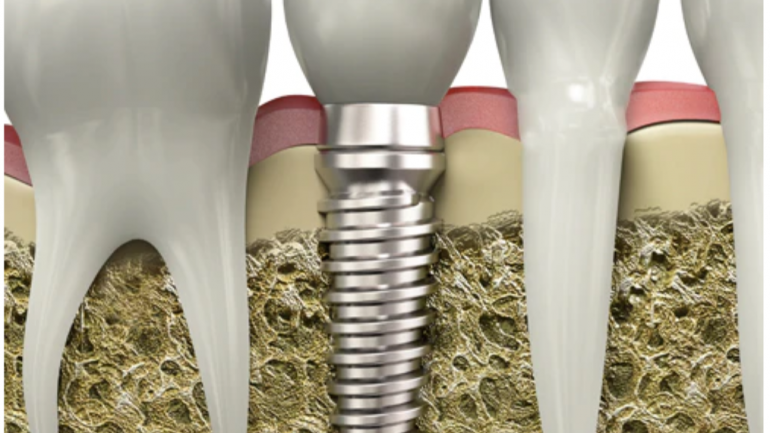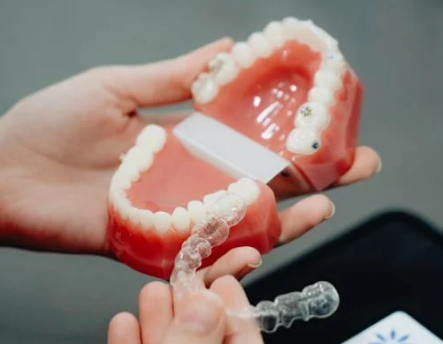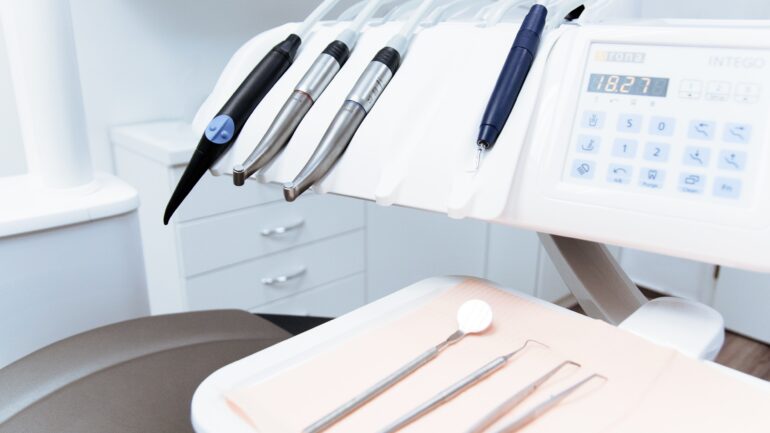If you have one or more teeth missing, you will probably find it is having a negative impact on you in terms of your ability to eat certain foods, or in your confidence to smile. Having a noticeable gap between your teeth can make you very self conscious, but luckily there are discreet treatments to replace missing teeth, the most notable of which is probably dental implants. To help you decide whether implants are for you or to help get you prepared for your treatment, here is a little more information on what to expect.
What are dental implants?
As the name suggests, a dental implant is a titanium screw placed into the jawbone to replace a missing tooth root. This implant can then support a false tooth on the top, in the form of a crown or denture, which will blend into your natural smile.
Dental implant treatment may just involve the replacement of one tooth, or a complete set of teeth, depending on your circumstances.
As with any dental treatment, how long implants last will generally depend on how well you look after them and the care you take with your overall oral health routine. Neglecting your dental implants could result in food debris and bacteria coating the tooth and causing gum disease. It is recommended that you follow a good oral health regime and visit your dentist for regular appointments in order to keep all of your teeth, gums and implants in good condition.
The dental implant procedure
Depending on the type of implants you receive, you will probably need to have two separate procedures at your dental practice. The first will be to fit the implant into the jawbone and the second, a few months later, will be to fit the new permanent tooth on top of the titanium screw once it has had a chance to fuse with the jawbone.
Some dental practices offer modern alternatives to traditional implants, which can be completed in just one day. They are not suitable in all circumstances, but it is worth finding out about the treatments, such as All-on-4 dental implants, which can provide a non-removable arch of teeth in just one procedure. This type of procedure is often recommended to patients who have not got on well with dentures and want a more stable, permanent solution that allows them to eat and speak with confidence.
Dental implants will not be suitable for everyone, it all depends on the condition of the bone in your jaw. If there isn’t enough, a bone graft may be needed first before implants can be successfully placed. This is something that your dentist will advise on and carry out tests on so you can be fully informed before going ahead with any treatment.
Benefits of dental implants
The main reason why many people have dental implants is because they are durable and discreet. They can take away the worry of eating in public that comes from having visibly missing teeth and give you back the confidence to smile. If you are considering treatment,, here are a few more advantages that might help sway your decision:
- Dental implants are discreet – they are matched to the size, shape and colour of your surrounding teeth to blend in naturally with your smile.
- They are durable and designed to last a long time, provided that you look after them
- They don’t impact your speech and give you back the ability to eat, drink and smile normally.
- They can prevent future bone loss by stimulating the jaw
Do’s and don’ts after dental implants
If you think dental implants are right for you, or you’ve already booked in for treatment and want to know how to prepare, there are just a few things you need to consider:
Do:
- Consume soft foods in the days following your surgery to aid recovery
- Use hot salt mouthwashes to aid healing in the first week after treatment, or as directed by your dentist
- Keep your mouth and teeth clean
- Take painkillers as advised by your dentist to ease any pain and discomfort following treatment
Don’t:
- Consume hot food or drinks 24 hours after implant surgery
- Undertake strenuous exercise for the first 48 hours
- Ignore increased pain and swelling – contact your dentist as you may be developing an infection
Searching online will yield more information about dental implants, but the best advice will come from your dentist. Dentalia is a specialist dental practice, which started as a dental laboratory and continues to specialise in implant dentistry. For more information or to book in for dental implants in Basingstoke you can visit www.dentalia.co.uk.




